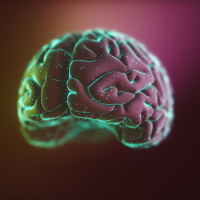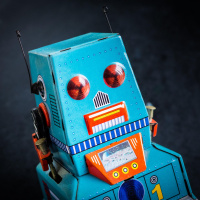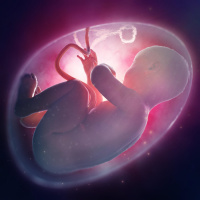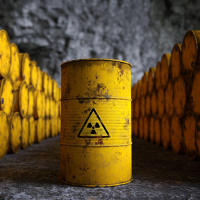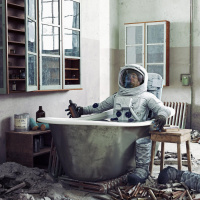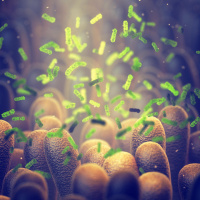Synopsis
Jonathan McCrea brings you the latest developments from the world of Science and Technology from robotics in warfare to artificial lifeforms and beyond
Episodes
-
Futureproof Extra: Just how big can our brains get?
03/10/2023 Duration: 13minResearchers at the University of Cambridge have conducted the largest-ever study of the genetics of our brain structure. But how can the shape and size of our brain impact our understanding of neurological and psychiatric conditions? Joining Jonathan to discuss is the co-lead of this study Professor Richard Bethlehem who specialises in brain imaging, genomics, and computational neuroscience.
-
Are we too fixated on optimising our world?
01/10/2023 Duration: 33minWhat are the consequences of living in a world so driven by efficiency, pace, and cost? Applied mathematician Coco Krumme, uses mathematical modelling to get to the bottom of this in her new book 'Optimal Illusions: The False Promise of Optimisation' - she joins Jonathan to discuss.Also joining Jonathan to go through the top news stories from the world of science is Dr. Fergus McAuliffe from iCRAG & Laura Healy, Sustainable Food Production Scientist with Teagasc.
-
Futureproof Extra: Toxoplasma Gondii
26/09/2023 Duration: 16minWhat if we told you that a tiny parasite might be influencing the very core of wolf behaviour, making these fierce predators act in ways contrary to their survival instincts? Enter Toxoplasma Gondii, the unseen puppeteer. Kira Cassidy, a leading research biologist from the Yellowstone Wolf Project - who has delved deep into the mysteries of this parasite and its staggering effects not just on wolves, but possibly on us humans as well - joins Jonathan to discuss.
-
Lessons in longevity from the naked mole-rat
24/09/2023 Duration: 27minListeners to the show might remember that last year we spoke to Dr. Vera Gorbunova from Rochester Aging Research Center at the University of Rochester about her work on SIRT6 - often referred to as the “longevity gene” because of its important role in organising proteins and recruiting enzymes that repair broken DNA. Since then, she and her team have made significant progress in the study of longevity by successfully transferring a different gene from naked mole rats into mice, resulting in improved health and an extension of the mouse’s lifespan. Jonathan is joined by Dr. Vera Gorbunova to discuss.
-
Futureproof Extra: Protecting our underwater cultural heritage
19/09/2023 Duration: 19minWalk into any national museum, in any part of the world, and you will see artifacts of significance – from coins and jewellery, to weapons, utensils, artwork, clothing, and even human remains. They are preserved because these objects tell us something about who we are and where we came from.But what if there is an artifact that is tens, or even hundreds, of meters underwater? How do we protect it from deterioration?Joining Jonathan to discuss this is Dr. David Gregory, Senior Researcher and Honorary Professor from the National Museum of Denmark.
-
Can a robot be a person?
17/09/2023 Duration: 35minWhile the question of 'what is a robot?' might have been easily answered just a few years ago, it is increasingly difficult to define.So, rather than try to fit robots into the existing categories of what is a person and what is a thing, do we need a new framework for the twenty-first century?David J. Gunkel thinks so. He is Professor of Media Studies at Northern Illinois University and author of ‘Person-Thing-Robot: A Moral and Legal Ontology for the 21st Century and Beyond’ - he joins Jonathan to discuss.
-
Futureproof Extra: The World of Dust
12/09/2023 Duration: 16minDust. You might hate it, you might want to get rid of it, you might not know where it comes from, but did you know there are actually two billion tonnes of dust lifted into the Earth’s atmosphere each year? Joining Jonathan to discuss the world of dust is researcher Jay Owens, who has written a new book called ‘Dust – The Modern World in a Trillion Particles’.
-
What our eyes can tell us about our health
10/09/2023 Duration: 37minWe think of our eyes as external organs, but anatomically we can also consider them to be an extension of the brain, and this feature is proving to be really useful when trying to understand not just what's happening in our brains, but in our bodies as well.Joining Jonathan to discuss is David Keegan, Consultant Ophthalmologist at the Mater Hospital.
-
Futureproof Extra: How rotational force is essential to everything
05/09/2023 Duration: 13minDid you know that in one sleep you will have travelled close to million miles by the time you wake up? This is due to the fascinating science of spin and rotational force. Joining Jonathan to detail his fascinating new book “The Science of Spin" and explain how understanding this force we can enhance our lives was Roland Ennos visiting professor of biological sciences at the University of Hull
-
Will we soon be able to cure obesity?
03/09/2023 Duration: 38minWeight loss drugs such as Wegovy and Ozempic have exploded in popularity over the past few years with them producing some quite incredible results. But could these drugs be the cure to obesity and do we have the wrong approach in dealing with the illness? Joining Johathan to discuss was Dr Margaret Steele a post-doctorate researcher at the School of Public Health at University Colledge Cork.
-
Futureproof Extra: The Science of Cultured Meat
29/08/2023 Duration: 15minFrom dietary downsides to the environmental impact large-scale farming has on the planet - not to mention the profound cruelty to which billions of animals are subjected annually - there are plenty of arguments against human consumption of animal meat. But what about meat that’s not derived from animals who once roamed in fields, but grown in labs instead? Is it really the future of food? Dr. Mark Post, Professor of Sustainable Industrial Tissue Engineering at Maastricht University joins Jonathan to discuss.
-
Womb transplants and the future of reproductive medicine
27/08/2023 Duration: 32minIn a pioneering operation, the first womb transplant took place in the UK this week. But how soon could we see this in Ireland? Joining Jonathan to reflect on this is Conor Harrity, Consultant Gynaecologist, Sub-specialist in Reproductive Medicine at the Rotunda & Beaumont, and Medical Director of First IVF.
-
Futureproof Extra: Capturing Cosmic Dust
22/08/2023 Duration: 15minCosmic dust might be closer than you think - in fact, it might even be on top of a nearby tall building. And that’s exactly where Dr. Penelope Wozniakiewicz, Senior Lecturer in Space Science at the University of Kent, is focusing her searches as she and her colleagues are exploring cathedral roofs to find traces of these particles. But why? What can we learn from cosmic dust and what is it in the first place? Penelope joins Jonathan to discuss.
-
Can we reverse or stop ageing completely?
20/08/2023 Duration: 40minYou might think becoming eternally young isn’t possible but scientists from Cornell University, the University of Oxford, the University of Cambridge, and Cancer Research UK, are actively exploring how to reverse the ageing process. Dr. Meng Wang, Clinician Scientist in Haematology at Cornell University joins Jonathan to discuss.
-
Futureproof Extra: Burying nuclear waste in Finland
15/08/2023 Duration: 17minIn the depths of the ground in Finland, high-level radioactive nuclear waste will be buried in the world’s first such permanent storage facility of this kind. So, what does this process look like and will other countries in Europe soon be following suit? Joining Jonathan is journalist Erika Benke who has been writing about this for the BBC.
-
How to build a spacesuit
13/08/2023 Duration: 37minHave you ever wondered about what goes into making a spacesuit? Amy Ross has been with NASA for 30 years, and is a spacesuit engineer specialising in pressure garments. She joins Jonathan to discuss her work. This week’s Newsround with Dr Lara Dungan and Dr Ruth Freeman features a vaccine showing promise against the virus linked to multiple sclerosis; a massive sun 'umbrella' could be tethered to an asteroid to shield Earth from the sun and fight global warming; walking fewer than 10,000 daily steps still reduces the risk of death; and babies' and adults' love for Van Gogh shows a connection between early sensory preferences and later aesthetic judgments.
-
Futureproof Extra: The Science of Suncream
08/08/2023 Duration: 16minThe science behind suncream is really surprising, as explored by writer Grace Browne in her recent piece in Wired. She joins Jonathan to shed light on something most people haven't thought of.
-
Blackholes in Bathtubs
06/08/2023 Duration: 37minBlack holes - cosmic enigmas with immense gravitational forces - have long perplexed scientists. At Nottingham University's Black Hole Laboratory, Prof. Silke Weinfurtner pioneers an unconventional method using a hi-tech bathtub and superfluid helium as analogues to explore black hole behaviours. How might these analogues provide us with new insights into the mysteries of black holes and the fundamental laws of physics? Prof. Weinfurtner joins Jonathan to discuss her innovative research.
-
How technology affects our sleep
01/08/2023 Duration: 17minThe way we sleep has dramatically changed in recent years. Our alarm clock used to be the only piece of tech we associated with sleep, but we now have apps that track our sleep, evaluate its quality, and how much more or less we may need on a day-to-day basis. But how do all of these advances in sleep-orientated actually technology affect us? Katie Coveney is a senior lecturer in Sociology at Loughborough University in the UK & a medical sociologist with expertise in social and ethical aspects of medicine and health care. Catherine has just co-authored 'Technosleep: Frontiers, Fictions, Futures', a book that examines the relationship between sleep and technology. She joins Jonathan to discuss.
-
The relationship between your gut and your relationships
30/07/2023 Duration: 37minDid you know your gut might be able to tell you about the strength of your relationships? A recent study from Arizona State University shows that the strength of a couple’s emotional connection is correlated with the diversity of their individual microbiome. Joining Jonathan to discuss their findings is Rosy Krajmalnik-Brown, Director of the Biodesign Center for Health Through Microbiomes and a Professor at the School of Sustainable Engineering and The Built Environment at Arizona State University & Shelby Langer, Associate Professor at the ASU’s College of Nursing and Health Innovation and a member of the Center for Health Promotion and Disease Prevention. Also joining Jonathan for this week's Newsround is Dr. Shane Bergin, Assistant Professor in Science Education at University College & Dr. Ruth Freeman from Science Foundation Ireland.

